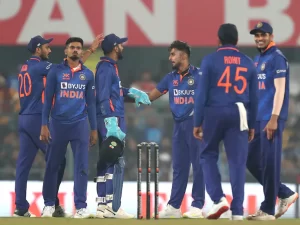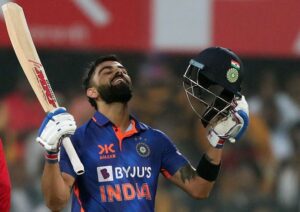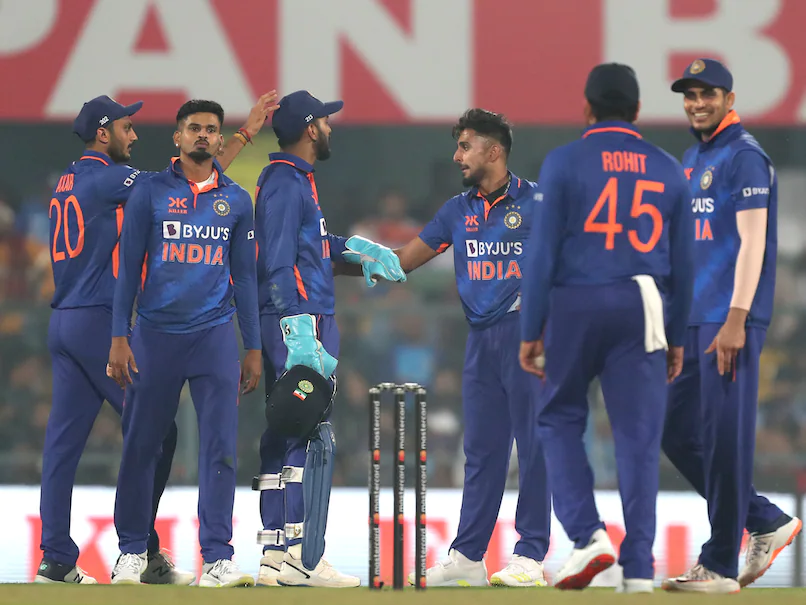India’s decision to bench SKY and Ishan Kishan didn’t prove costly in the first Sri Lanka ODI. In the end, the win was comprehensive. But there exist areas which will be closely followed over the next few outings
-Atreyo Mukhopadhyay
Apart from for pulling off a comprehensive win in the first ODI against Sri Lanka, the Indian team must also be complimented for taking a few tough calls. It is never easy to exclude some of the players who have done well in the recent past. Yet, captain Rohit Sharma and the team management decided to prioritise continuity and kept in mind the formats before selecting the XI.
It must have extremely difficult to leave out someone like Suryakumar Yadav, who has been India’s most standout batter in the T20s. Come on, think of it! He made 112 not out off 51 balls three days ago. And he was consistent in that format for a few months, playing several stunning innings. Most other teams would perhaps have made him the first name on the roster before choosing the rest. But the Indian team management took into account Shreyas Iyer’s consistency in 50 overs and SKY’s relatively low-key showing before selecting the XI for the first ODI in Guwahati.
Had the result gone the other way, daggers would have been out. They would have been ridiculed beyond imagination. It would have been described as one of the dumbest calls in history. But they chose to be brave, backed their instincts and Iyer, rewarding him for what he had done last year in 50-over games, averaging 50-plus. SKY, who was not as consistently destructive as he was in T20s, had no choice but to applaud the runs made by others sitting in the dugout.

The other most discussed decision was obviously the omission of Ishan Kishan, who blasted a double century in the last ODI India played, against Bangladesh last month. I don’t think anyone in the history of ODIs had previously been dropped for the next match after achieving this feat. It reminded one of the Australian team’s decision to bench Jason Gillespie after he scored a double as night-watchman in a Test against Bangladesh in 2006.
But then, the team management went with Shubman Gill, who had been averaging 70 or thereabouts over the last few months. They had invested in him and did not want to leave him out looking at one stupendous effort from Kishan. These decisions take a lot of courage other than anything else. At the end of the day, these calls paid off. Gill did not convert his half-century into something bigger in conditions suitable for batting but did make a valuable contribution. In future, he will be expected to make bigger contributions after playing himself in.
I have something else to say here. Kishan does not necessarily have to seen as an option for the opening slots. He can also be considered as a like for like replacement for Rishabh Pant as a wicketkeeper who will bat at No 5. One can argue that he is not a middle-order batter, but so was not KL Rahul. Even Rohit Sharma spent the first six years of his ODI career in the middle-order. Virender Sehwag was not an opener when he started out. These examples show that role adjustments are not new and sometimes, these have given tremendous results.
The other things to be followed closely over the course of the next few ODIs are the performances of Iyer and Rahul. Both were handy with the bat in Guwahati and shared useful partnerships with Virat Kohli, who battled it out for a 45th ODI century. Iyer and Rahul will have to make sure that they make something substantially more than brisk 30s. Not every day will the contributions of the top three make a telling difference. If they cannot, there are others breathing down their neck.

It was also disappointing to see the way the Sri Lankan tail wagged. They were 179/7 in the 32nd over and yet, finished at 306/8. Because India had far too many on the board, it did not matter in the end. But how often does a team amass 373? In matches where teams batting first make 280-320, such laxity can prove costly. Remember what happened in Bangladesh, where inability to polish off the tail cost India the series. So even in what was an emphatic win the end, there were grey areas.
But yes, the day will always be remembered for India’s batting and the brave decisions they took. They chose to stick to what they believe is a process instead of getting swayed by the odd sparkle and performances in another format. It’s a good beginning in all likelihood and they still have a few games to check out what’s best for the team before the World Cup.




